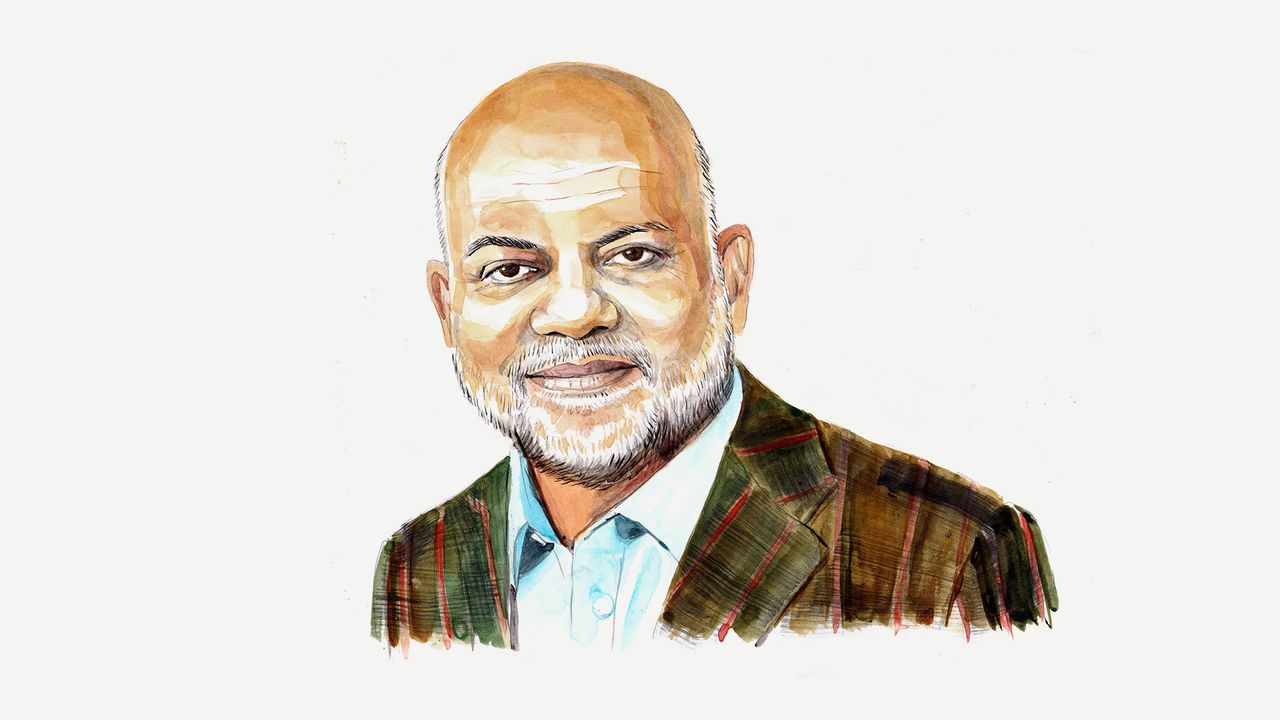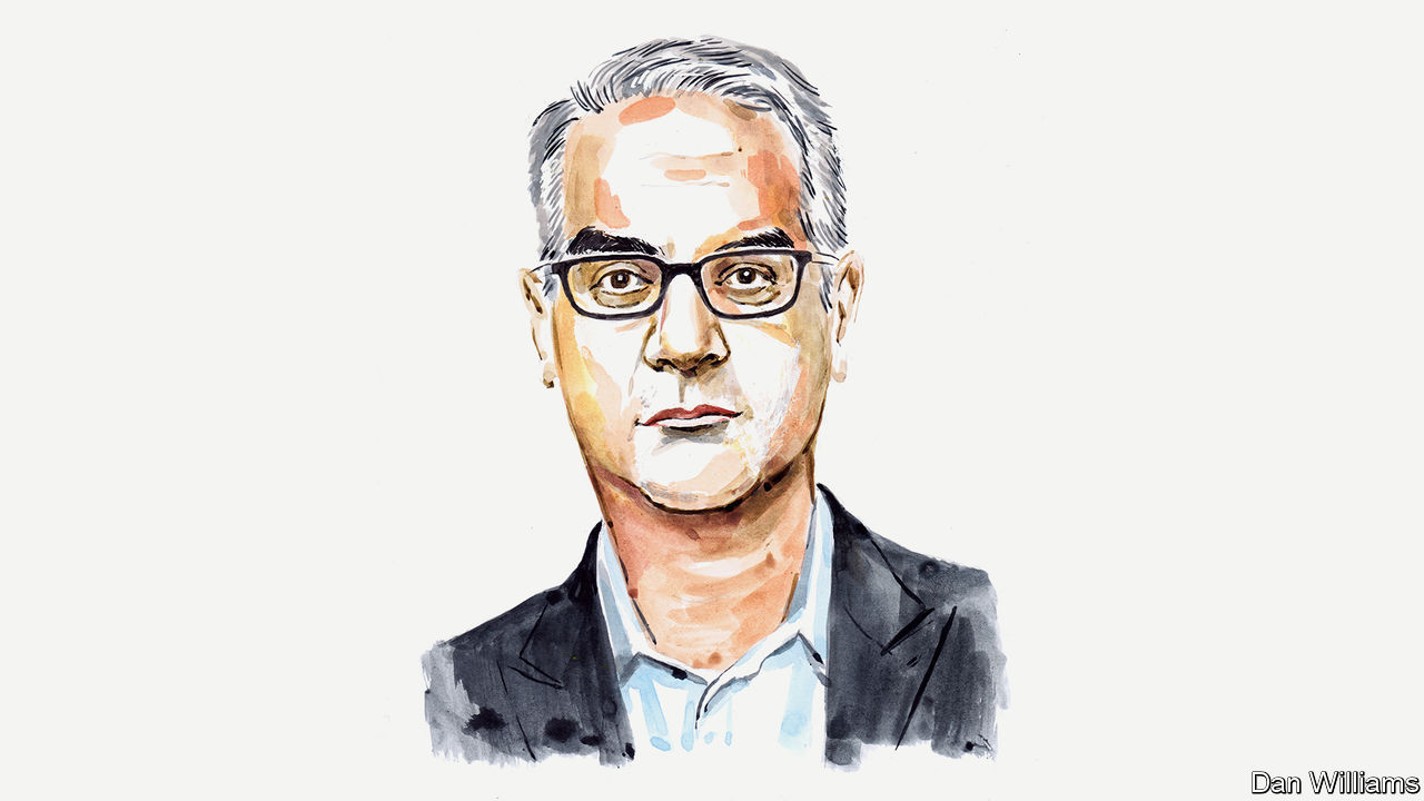An industry pioneer on the under-appreciated benefits of the global mobile revolution
It has increased productivity, agency and individualisation, says Iqbal Quadir

THE MOBILE era began in New York City in 1973, when Motorola’s Martin Cooper placed the first call from a handheld cellular phone. Today mobiles are a global necessity, embedded in daily lives to an extent unimaginable a generation ago. They have extended human capabilities and increased convenience in countless ways. They have also been implicated in societal ills ranging from teen depression to political polarisation. Yet an important aspect of this global revolution is often overlooked: the enormous power of mobiles to boost productivity.
In 1973, when the world’s population was 4bn, there were roughly 250m landline phones, mostly in rich countries. One in every 16 people on the planet enjoyed access to immediate communication by phone. Today, in a world with twice as many people, nearly everyone has access to a mobile.
I have seen this transformation first-hand. During its first two decades the mobile was a bulky analog device—and an even more exclusive privilege than landlines. When digital mobiles were first introduced in Finland in 1991, however, I realised that this new technology could spread in a radically different way. The cost of digital processing power had dropped dramatically since the 1960s, following the famed Moore’s Law. It was only a matter of time, I reasoned, before even the poorest citizens in my native Bangladesh would be able to afford mobiles.
Two years later I abandoned a career on Wall Street to explore the potential for a digital-mobile company in Bangladesh. At the time a mobile handset cost at least $500, while the annual GDP per person in Bangladesh was less than $300. Decreasing cost was only one factor that I expected to work in my favour, however. The other was increased personal productivity as more people got mobiles.
I knew well how much time and effort were wasted in Bangladesh owing to poor or non-existent means of communication. Mobiles could increase users’ day-to-day productivity. Higher productivity, in turn, could increase people’s ability to pay for mobile services. Many experts at the time could not see past existing consumer purchasing power. Consequently, they severely underestimated the potential market in Bangladesh and other poor countries.
In 1997 I founded Grameenphone with the aim of providing mobile access throughout Bangladesh. It did not take long for my premise to be validated. I met a barber who told me that a mobile and motorbike had liberated him from the burden of paying for an expensive street-front shop. Armed with his phone, he earned more money, while offering his customers greater convenience in their homes. Academic studies lent further support: one showed how fishermen in Kerala used their mobiles to contact coastal retailers before returning to shore. By landing at ports where demand for their catch was highest, they wasted fewer fish, increasing their profits. Today Grameenphone serves 85m people in Bangladesh, or just under 50% of the country’s mobile market.
The productivity-boosting power of mobiles has transformed one market after another. Gojek and Careem brought home-grown ride-sharing services to South-East Asia and the Middle East, respectively. MPharma, a mobile-health company, has been establishing a network of community pharmacies in Ghana. M-Pesa has transformed payments in Kenya. The list goes on.
The resulting productivity boost has been big enough to make a macroeconomic impact. Roughly half of the world’s population lives in the 80 countries whose annual per-person GDP is less than $4,500. From 2002 to 2022 the combined GDP of these countries increased more than fivefold. In the previous 20 years, before the mobile revolution, it had merely doubled. Establishing causality is difficult, but I believe that the proliferation of mobiles helped drive this inflection in growth.
Along with increased productivity, there is increased agency. With earlier communications technologies such as radio and television, people were passive consumers. In contrast, mobiles allow them to become content creators, broadcasters or entrepreneurs themselves.
Mobiles have also shown how agency might best be directed. The post-second-world-war model of aid from rich to poor countries can stifle growth by prompting states to encroach into markets. This frustrates human agency, prompting enterprising individuals to leave poor countries.
Migration, of course, does bring economic benefits. Receiving countries gain workers with drive and talent. Migrants send money home: $800bn globally last year. However, migration is costly and risky for migrants. It also contributes to anti-immigrant backlashes in rich countries. A better solution, as mobiles have shown, is to invest in tools that allow people to create economic opportunities for themselves in their own countries.
A third feature of the mobile era is increased individualisation. Where landlines were generic and interchangeable, today’s smartphones are a customised personal universe. For better or worse, our mobiles may know us more intimately than our relatives do. Services powered by artificial intelligence (AI) will take individualisation much further. The possible demise of handsets in favour of wearables or implants will only accelerate this trend.
Mobile-enabled AI is double-edged. All the risks of AI—from bias and misinformation to privacy concerns and loss of human connection—apply just as much with mobiles as in any other setting where humans and technology interact. But the benefits are clear, too, and likely to grow. An illiterate person in a village in Pakistan might receive location-specific agricultural coaching in her own dialect on her smartphone. A child in Kenya might be personally tutored by a Stanford professor—simulated using AI—on quantum physics. An elderly person in Peru might receive personalised care at home at a standard comparable to the best outpatient facilities today.
In the half-century since Mr Cooper made that call in New York, the three fundamental trends of the global mobile revolution—increased productivity, agency and individualisation—have provided huge opportunities for entrepreneurs and innovators to transform the human experience. Long may the revolution continue.■
Iqbal Quadir is a senior fellow at Harvard Kennedy School.
More from By Invitation

Mieko Kawakami on how men can make the world better for women
Fathers must confront their unconscious assumptions, says the Japanese writer

We need to focus more on the social effects of AI, says Nicholas Christakis
The sociologist’s experiments suggest it will change how humans treat each other

David Miliband sees a new global geography of crisis
Governments and NGOs need to rethink their priorities, says the head of the IRC